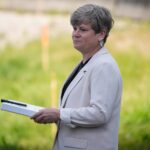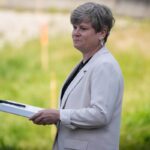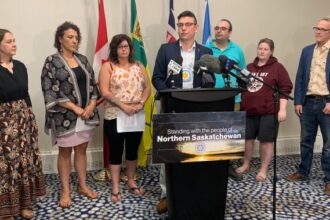The simmering tension between historical recognition and reconciliation has reached a boiling point in Ontario’s education system, as Education Minister Stephen Lecce intervenes to halt the Toronto District School Board’s plans to rename schools bearing the names of controversial historical figures.
In an unprecedented move, Lecce issued a ministerial directive Wednesday, effectively freezing the TDSB’s initiatives to remove names like Sir John A. Macdonald, Egerton Ryerson, and Henry Dundas from Toronto schools. These figures, while significant in Canadian history, have increasingly come under scrutiny for their roles in establishing residential schools and connections to slavery.
“Schools named after individuals who have made significant contributions to Canada should not be renamed without broad community consultation and consent,” Lecce stated in his directive. The minister emphasized that historical figures should be understood within the context of their time rather than judged exclusively by contemporary standards.
The TDSB had previously approved the renaming of three schools: Dundas Junior Public School, Ryerson Community School, and Sir John A. Macdonald Collegiate Institute. This decision followed a comprehensive review process initiated in response to growing calls for reconciliation with Indigenous communities and addressing historical injustices.
TDSB Chair Rachel Chernos Lin expressed frustration with the province’s intervention, noting that the board had conducted extensive community engagement before making these decisions. “Our renaming process involved months of consultation with students, parents, educators, and community members,” she told CO24 News. “These weren’t hasty decisions, but thoughtful responses to community concerns.”
The controversy reflects broader tensions playing out across Canada as institutions grapple with how to acknowledge historical figures’ contributions while recognizing their problematic legacies. Macdonald, Canada’s first prime minister, was instrumental in establishing the residential school system that caused immeasurable harm to Indigenous communities. Ryerson similarly influenced the creation of this system, while Dundas delayed the abolition of the slave trade in the British Empire.
Indigenous advocates have expressed disappointment with the minister’s decision. Cynthia Wesley-Esquimaux, Chair of Truth and Reconciliation at Lakehead University, said: “Renaming institutions is not about erasing history but about acknowledging the full truth of our past and creating spaces where all students feel respected.”
Conservative supporters of the directive argue that maintaining historical names provides opportunities for education rather than erasure. “We can teach about these figures in all their complexity without removing their names from public spaces,” said historian Michael Bliss in an interview with CO24 Politics.
The directive requires all Ontario school boards to implement detailed procedures for school naming and renaming that include extensive public consultation, detailed documentation of historical significance, and consideration of educational value. Any renaming decisions must be approved by the Minister before proceeding.
Education experts note that this controversy highlights fundamental questions about who controls local education decisions. “This represents a significant centralization of power,” explained education policy analyst Kelly Peters. “School boards have traditionally maintained autonomy over naming decisions as they best understand their local communities’ needs.”
As this situation unfolds, students at these schools find themselves at the center of a complex political and historical debate. Grade 12 student Aisha Morales from Sir John A. Macdonald Collegiate told CO24 News: “We’ve been having important conversations about Canadian history and reconciliation. Whatever the school ends up being called, I hope these discussions continue.”
The dispute raises fundamental questions about reconciliation’s practical implementation in public institutions. As Canada continues navigating the delicate balance between honoring historical contributions and acknowledging past wrongs, we must ask: How do we create educational environments that honestly confront our complex history while fostering inclusion for all students?

























